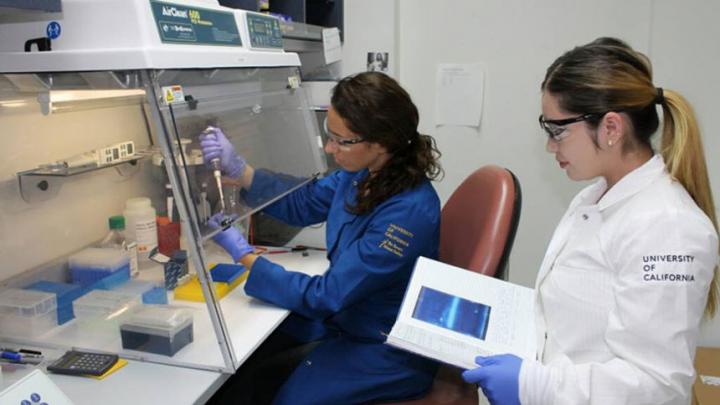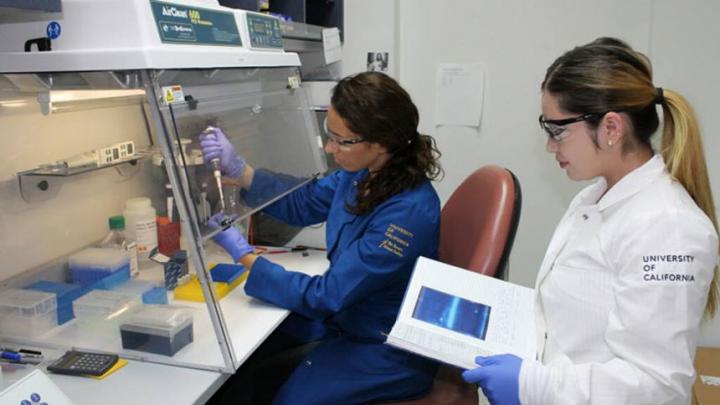
Credit: Mary Straub/UC Davis
Since 2002, an increasing number of institutions and universities have been developing educational programs related to a One Health approach. There are now at least 45 programs in the U.S. alone. "One Health" recognizes that the health of people is connected to the health of animals and the environment.
But very few have established core competencies or consistent standards for how they are applied. That is according to a systematic review of these programs by the One Health Institute at the University of California, Davis, School of Veterinary Medicine, with individuals from the National Academies' One Health Action Collaborative. Establishing core competencies is an important step toward advancing a One Health strategy for the United States, the study notes.
The study, published June 4 in the journal National Academy of Medicine Perspectives, identifies gaps in the growing trend of One Health education and provides recommendations to train future practitioners.
"We believe that there are three main skill sets that are important to equip future professionals with to solve complex public health challenges: a robust knowledge in health science; an understanding of local and global issues related to human, animal, plant and environmental health; and important professional skills, such as communication," said first author Eri Togami, a One Health fellow at the One Health Institute at UC Davis. "We recognize there is a large variety of educational programs for different purposes. Having these three pillars will help aspiring One Health professionals go through high quality training."
CURRENT OUTBREAK SHOWS ONE HEALTH IN ACTION
Lessons from past infectious disease outbreaks have shown that training professionals in the One Health arena can improve epidemic and pandemic preparedness. These efforts are illustrated by programs like USAID's PREDICT, led by UC Davis, which works to find and halt the spread of viral disease. The strategy is currently in effect in the Democratic Republic of Congo to curtail the Ebola outbreak there.
"The Ebola outbreak in DRC, which the One Health Institute is supporting right now, is a challenging but good example of where One Health comes into play," Togami said. "PREDICT is working with people in the field to facilitate the One Health approach and support response logistics. When these difficult events happen, we would like experts to work together collaboratively, which is exactly what One Health is about."
WHAT'S MISSING?
The report provides four main recommendations:
- Clearly state core competencies, such as for health knowledge and an understanding of global and local issues for humans, plants, animals and the environment.
Of the 45 programs identified, 60 percent did not explicitly state core competencies, and only 31 percent publicly listed them online.
For example, the Global Disease Biology major, introduced at UC Davis in 2014, clearly shows its core competencies online.
- Educate future professionals in disciplines that are currently well-represented, as well as in disciplines that are not.
Epidemiology and environmental health and ecology were well-represented in 75 percent of the programs. The most underrepresented disciplines were plant biology, law and antimicrobial resistance.
- Continue to emphasize hands-on, practical and applied training for students, such as internships, capstone projects and working in nonacademic settings.
Most One Health programs already do this. An example is UC Davis' Rx One Health course, where students travel to Tanzania, with "classrooms" ranging from labs to farms, rivers and village campfires.
- Emphasize communication. Less than half of current programs focus on the communication required to collaborate with team members, the public, policymakers and in different cultural settings.
"The world is facing enormous health challenges," said Professor and One Health Institute Director Jonna Mazet, the study's senior author, who also serves as the chair of the National Academies' One Health Action Collaborative. "Our best hope to solve them in a meaningful timeframe is to shift the educational paradigm, encouraging and valuing collaboration across disciplines.
"I am encouraged to see the country's top educational institutions taking up this charge and creating so many new programs. Our hope is to provide some guidance to help them achieve their goals and ultimately improve the health of our planet."
###
Media Contact
Kat Kerlin
[email protected]
530-750-9195
@ucdavisnews
http://www.ucdavis.edu
Original Source
https://www.ucdavis.edu/news/training-next-generation-one-health-professionals





